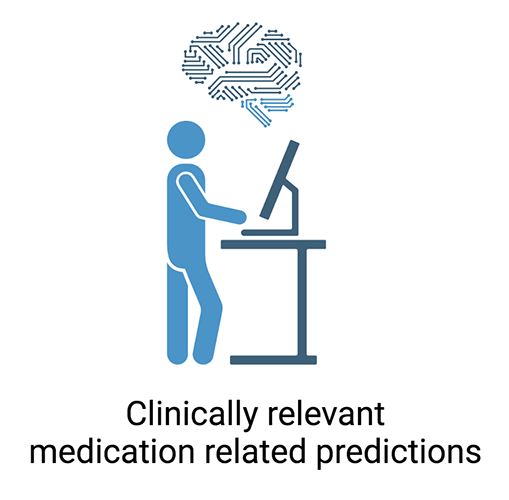Teaming for Interdisciplinary Research Pre-Seed Program
Artificial intelligence-based health IT tools to optimize critical care pharmacist resources

Artificial intelligence-based health IT tools to optimize critical care pharmacist resources

Critically ill patients are at heightened risk of adverse drug events (ADEs) that worsen outcomes. Critical care pharmacists (CCPs) prevent ADEs, improve patient-centered outcomes, and reduce healthcare costs through performing medication interventions. However, CCPs are an inequitably distributed and non-optimized healthcare resource due to lack of health information technology (IT)-based predictive tools that can identify CCP-driven medication interventions that prevent ADEs. To identify these preventative medication interventions, delineating the medication outcome causal pathway among patient features, medication interventions, ADEs, and patient-centered outcomes is required. Here, novel causal inference methodologies incorporating artificial intelligence (AI) and machine learning (ML) will be applied for the first time to medication safety questions in the ICU. The strategy will focus on developing a novel scoring tool designed for prediction, the medication regimen complexity-intensive care unit (MRC-ICU) Scoring Tool, to predict intervenable ADEs in this causal pathway that are predictable by patient features, preventable by CCPs, and otherwise associated with poor outcomes. The central hypothesis is that an AI-informed dashboard visualizing the medication outcome causal pathway can optimize CCP care to improve patient-centered outcomes. The objective of this work is to apply AI and ML methodology to create prediction tools for integration into visualization dashboards that answer vital questions including (1) what is the best metric for predicting ICU intervenable events and CCP workload?; (2) what causal factors of intervenable events can be prevented by CCPs?; (3) how can CCPs efficiently use AI-based predictions at the bedside? The long-term goal of the proposed work is to establish validated prediction models that can be embedded into dashboards in the electronic health record (EHR) to help guide CCP delivered care. The central hypothesis will be tested via these specific aims: (1) Create robust prediction models of intervenable events to guide CCP medication interventions; (2) Explore causal relationships among intervenable events, CCP interventions, and outcomes; (3) Design an EHR-integrated platform (ICView) to visualize predictions to guide CCP care. Applying user centered design methods will result in a visualization dashboard (ICView) that houses MRC-ICU based, AI-informed prediction models for CCP interventions that can improve patient outcomes.
Team Lead
Ye Shen
College of Public Health
yeshen@uga.edu
Andrea Sikora (co-lead)
College of Pharmacy
sikora@uga.edu
Team Members
Susan Smith
College of Pharmacy
Tianming Liu
Department of Computer Science
Sheng Li
Department of Computer Science
Mark Ebell
College of Public Health
Andrea Sikora
College of Pharmacy
